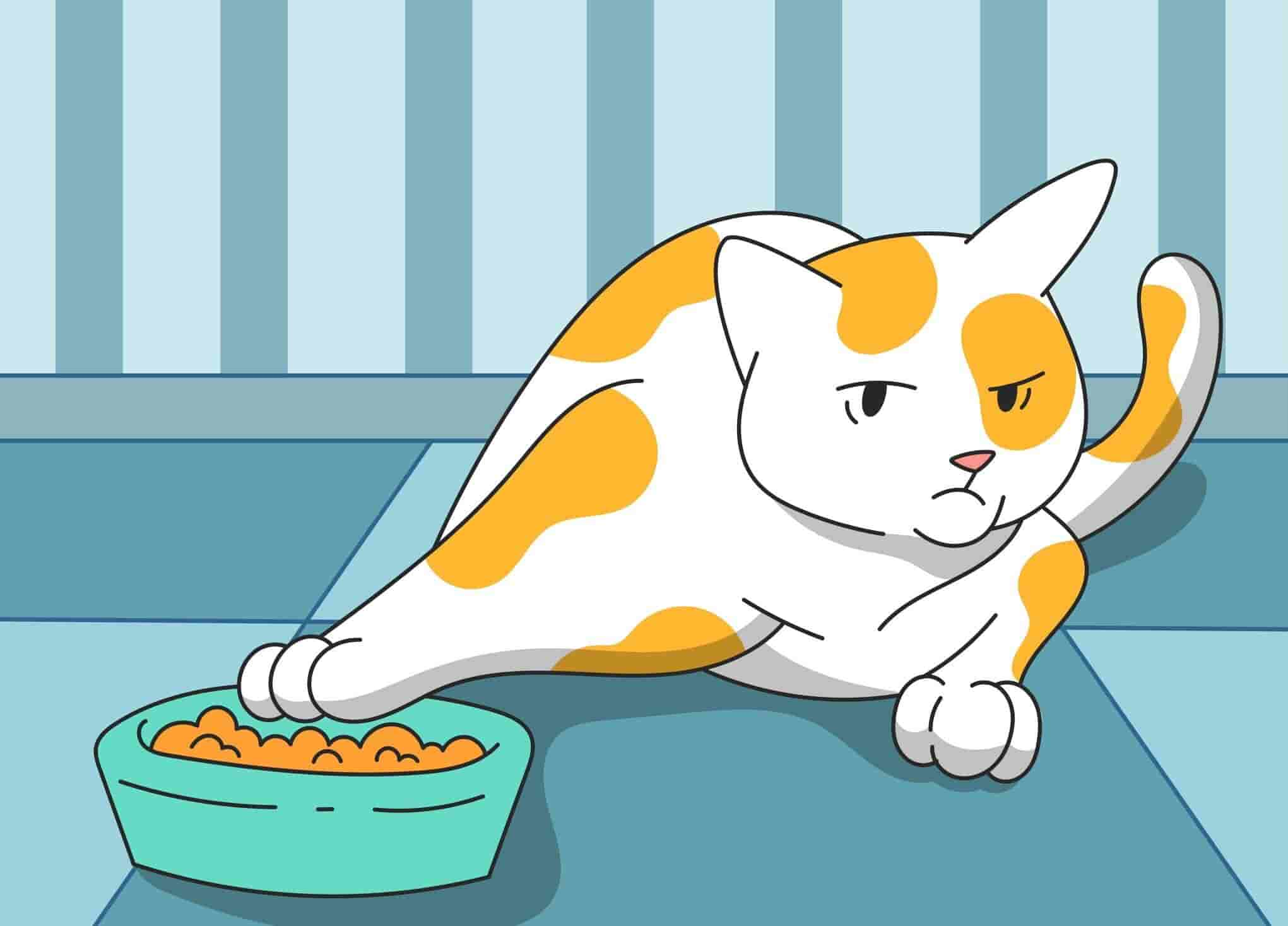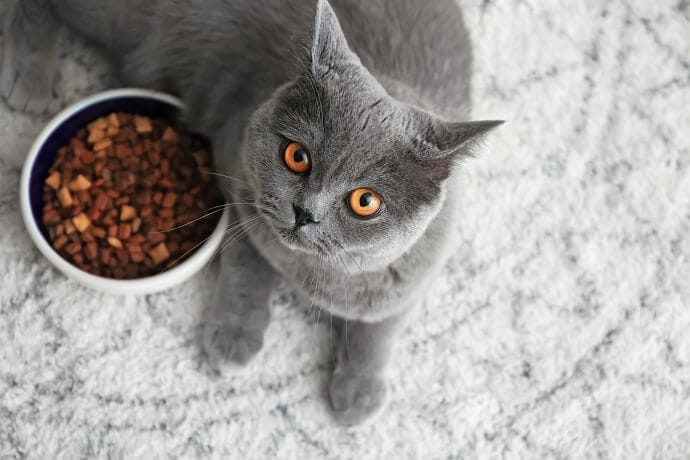Cats are strange and wondrous creatures. Notorious for their sometimes stand-offish behavior, cats still remain a beloved family pet. In fact, in ancient times, cats were revered and treated as royalty. Today’s cats retain that aura of respectability while remaining aloof.
However, there is one thing most cats rely on their owners for: food. In fact, some cats may snooze the day away and only resurface when it’s time to eat. And, of course, their doting owners submit to their demands.
Cats Can Be Finicky Eaters
As cats are picky about who they shower with love, it’s no surprise they are picky about other things, including food. While dogs generally scarf whatever food is placed in front of them, cats have finer tastes. There’s a reason many cat foods are flavored with salmon and other quality fish.
And while any cat can be finicky about food, there are some cat breeds that are picky eaters more often than others, such as the Birman cat.
People like to vary their meals every day. Yet, we expect our pets to eat the same food day after day without complaint. In some cases, a cat not eating can be their version of complaining.
Sometimes a cat refusing to eat is the first sign of a serious medical condition. But more often, it’s an easily fixed minor health issue or even just a common quirk.
Regardless, many cat owners have gone through the same thing. You’re not alone nor is your cat trying to spite you, though it can certainly seem like that at times.
It could be something as simple as your cat developing allergies to their regular food. Adding a grain-free food to their diet can help jump-start their appetite.
Possible Reasons for Your Cat Not Eating
It can be discerning when a cat that normally eats fine suddenly turns their nose up at dinner time. However, it’s not necessarily a reason to panic. Most of the time, the explanation has a simple solution.
Whether a medical problem or just food boredom, there are several possible reasons for your cat’s sudden refusal to eat.
-
Problems with respiratory or digestive systems. Many digestive and respiratory issues can be corrected easily. There is, however, a chance it’s a sign of a more serious problem, such as cancer.
-
Hairball or other foreign objects. Since cats groom themselves by licking their fur, they invariably ingest a significant amount of hair. That can lead to hairballs in their digestive tract that cause blockages if they aren’t coughed up. Other foreign objects include hair ties, dirt, or anything your cat may eat when you’re not looking.
-
Dental issues. Just like humans, cats can have painful dental problems. The last thing you want to do when your teeth hurt is to eat, right? It’s no surprise that dental pain can be a reason why your cat stopped eating.
-
Spoiled food. Cats rely very strongly on their sense of smell, more so than humans. As a result, your cat may notice that the food has spoiled or otherwise gone bad before you do. If your cat suddenly won’t eat, the first thing you can do is check the expiration date.
-
Doesn’t like the food anymore. Would you get bored eating the same food day after day? It’s not unreasonable that your cat may simply not enjoy eating that particular brand, texture, or flavor anymore.
Regardless of the ultimate cause, a vet visit is often warranted to find the answer and a viable solution, but sometimes consultation with a 24/7 licensed Online Vet would be a great alternative to get your concerns addressed.
5 Ways to Help Your Cat Regain an Appetite

Photo by Miron Cristina on Unsplash
You may think your cat will eat when it’s hungry. Maybe it will, but maybe it won’t. In fact, not eating can be dangerous for some cats, causing liver problems. While “wait and see” may be effective with other behavior issues, eating is essential to survival.
Try the following tactics to stimulate your cat’s appetite when they are not eating.
1. Check ingredients on regular food for changes.
Sometimes when a cat food is “new and improved,” it really means it has new ingredients. Your cat may simply not like the new ingredients or changes made by the food manufacturers.
2. Combine wet and dry food.
If you typically only feed your cat dry food, you can try to mix it up a bit by adding a small amount of wet food, or vice versa. Sometimes all your cat needs is for you to spice up their food a little.
3. Try different flavors.
Once you get the all-clear from the vet to ensure it’s not a medical problem, you can try changing different flavors or textures. You may even have to change your cat’s bowl, as the sides can sometimes aggravate their whiskers.
4. Make your own food.
Many dog owners make their pet’s food from scratch to provide a healthier meal. It’s completely feasible for cat owners to do the same. Directions and ingredients can be found in a wide variety of places on the internet or by consulting with your vet.
5. Vet visit to rule out problems.
The vet can rule out serious medical and dental problems. If the problem is medical but not serious, they can prescribe medication to help your cat get their appetite back.
Many Cats Are Food-Motivated
It’s important not to panic if your cat isn’t eating. Cats, like humans, love to eat. In many cases, their lack of appetite has an explanation that can be easily resolved with minimal worry or expense.
When Should I Call the Vet?
Well, cats can be a very picky eater and it’s not surprising that they skip a meal here and there, but if they haven't eaten for two or more days and you've tried the tricks above, take them to a veterinarian right away!
In this case, it may not be simply that your cat is picky, it usually means they are suffering from a disease that makes them feel nauseous, or sick in some way. Contact the vet as soon as you notice a change, whether sudden or gradual, in your cat's behavior. The earlier these medical issues are addressed, the better the outcome.
Author
Leo Wilson graduated from a university major in animal health and behavior. He had over a decade of experience working in the pet industry and has contributed many dogs and pet-related articles to several websites before he decided to start sharing his knowledge on his own blog. Currently, he is an editor manager at CyberPet. And when he is not busy working, he and his wonderful wife love spending time at home with their 3 dogs and 2 cats.
Was this article helpful?
Help us make our articles even better











